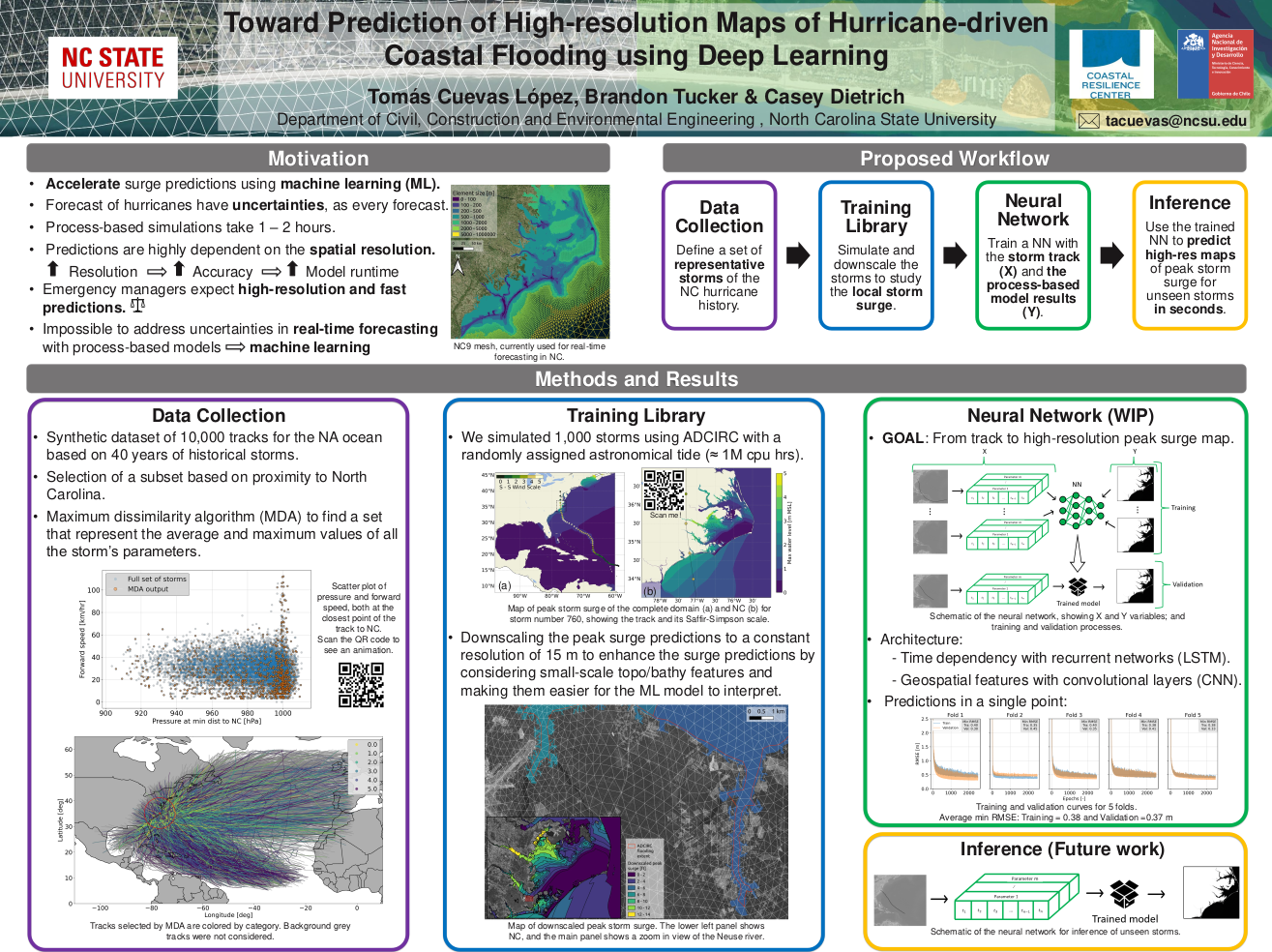Tag Archives: Jenero Knowles
Jenero selected as Global Change Research Fellow
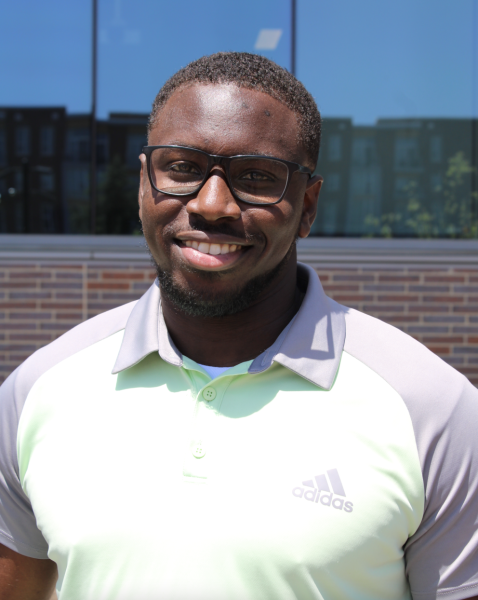 Ph.D. student Jenero Knowles was selected as a Global Change Research Fellow by the Southeast Climate Adaptation Science Center. Jenero will participate in the 2023-2024 cohort and receive training and collaborate with students from across disciplines in climate science.
Ph.D. student Jenero Knowles was selected as a Global Change Research Fellow by the Southeast Climate Adaptation Science Center. Jenero will participate in the 2023-2024 cohort and receive training and collaborate with students from across disciplines in climate science.
The fellowship program is designed to train the next generation of global change scientists by providing financial, scientific, and professional development support for graduate students who are interested in multi-disciplinary research. They come together across disciplines to discover, collaborate, and share their knowledge with diverse stakeholders. Learn more about the program at the SECASC web site.
Congratulations to Jenero!
Poster: EWC Symposium 2023
JS Knowles, JC Dietrich. “Storm Surge Predictions at Hyperlocal Sites“. Environmental, Water Resources, and Coastal Engineering Research Symposium, North Carolina State University, 10 March 2023.
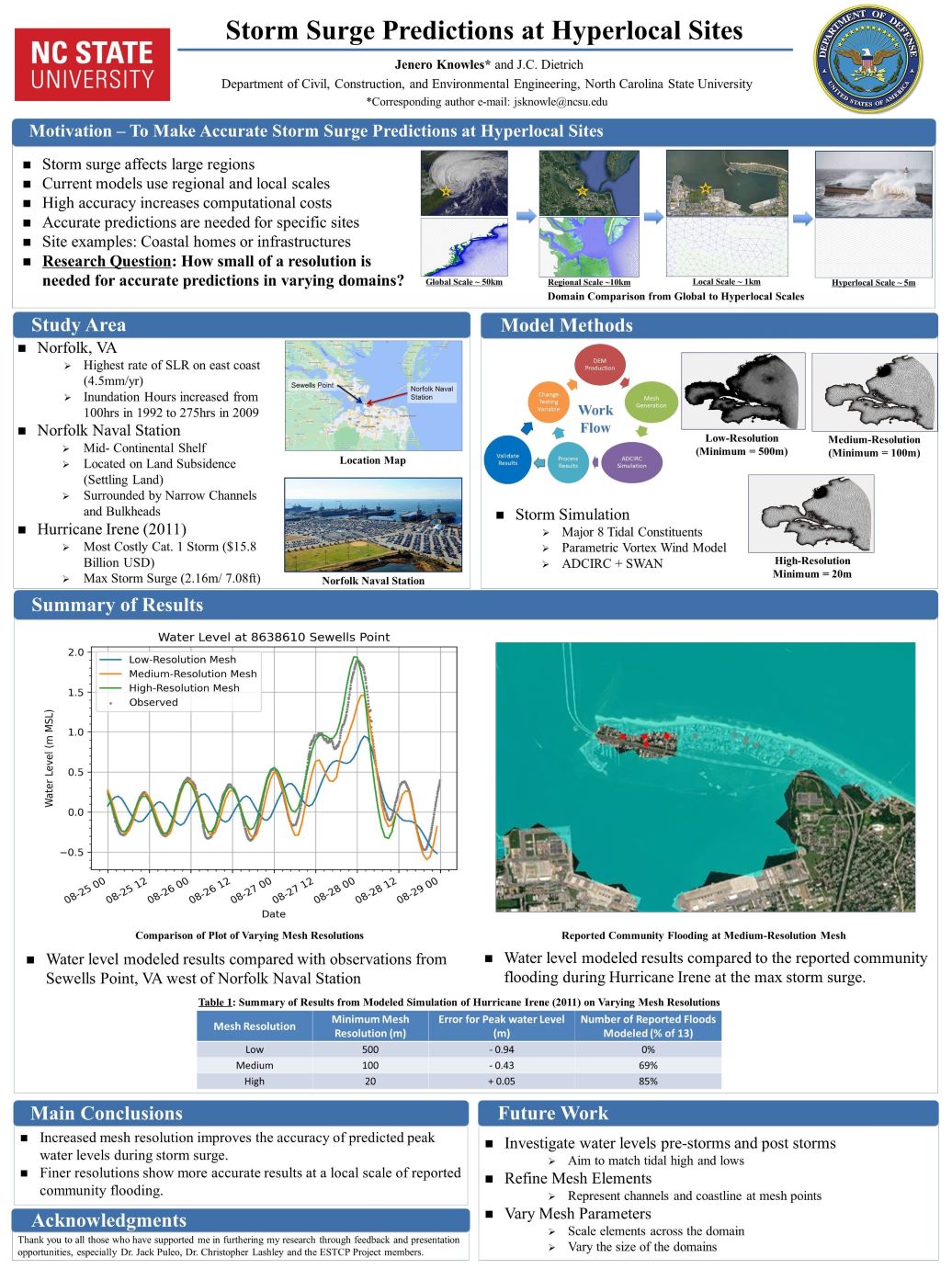
Storm Surge Predictions at Hyperlocal Sites
TA Cuevas López, BJ Tucker, JC Dietrich. “Toward Prediction of High-resolution Maps of Hurricane-driven Coastal Flooding using Deep Learning“. Environmental, Water Resources, and Coastal Engineering Research Symposium, North Carolina State University, 10 March 2023.
News: Preparing for a Changing Climate
UD civil engineers lead research to examine models for coastal readiness at U.S. military bases
![]()
University of Delaware civil engineers are leading a multi-institutional effort to identify the best models to calculate flood risk at coastal military installations where climate change threatens to increase the risk of flood damage from sea level rise and storm surge.
The four-year project, which launched in mid-2022 and will run through spring 2025, is funded by a $2.2 million grant from the U.S. Department of Defense (DoD). Project partners include faculty and students from the Netherlands, North Carolina State University, the University of South Alabama, Texas A&M and the United States Geological Survey (USGS).
…
“The goal is to provide guidance to the DoD about the strengths and weaknesses of each model in comparison. They’re all going to have things they’re good with and things they struggle with,” Dietrich said. Those comparisons will help the agencies decide what types of models they want to use to get what types of information — depending on how much time, effort and funding they want to commit.
There’s also a goal of reducing cost and building smarter models, he said.
“If we are able to improve our predictions at very specific sites along the coast, we also can have better predictions at other specific sites along the coast, like someone’s house or a bridge or other infrastructure,” Dietrich said.
Conference: YCSECA 2022
Jenero wins Witherspoon Graduate Fellowship
 Ph.D. student Jenero Knowles was awarded the Witherspoon Graduate Fellowship from NC State’s Graduate School. The competitive one-year award is given to rising second-year graduate students who support Black communities at NC State and beyond, and selections were made by representatives from the Black Alumni Society and Graduate School. The award is named in honor of Dr. Augustus M. Witherspoon, who was the second Black graduate student to receive a doctorate from NC State and the first Black professor at the university.
Ph.D. student Jenero Knowles was awarded the Witherspoon Graduate Fellowship from NC State’s Graduate School. The competitive one-year award is given to rising second-year graduate students who support Black communities at NC State and beyond, and selections were made by representatives from the Black Alumni Society and Graduate School. The award is named in honor of Dr. Augustus M. Witherspoon, who was the second Black graduate student to receive a doctorate from NC State and the first Black professor at the university.
Read more about the award on our department web site.
Congratulations to Jenero!
Alireza and Carter are NCSU Graduates
Alireza is now a coastal engineer with Taylor Engineering, Inc., and Carter will start his MS studies at Oregon State University. We also celebrated the graduation of Vega Sproul, who was an intern at the Coastal Studies Institute and then an undergraduate researcher with Dr. Beth Sciaudone. We are extremely proud of them!
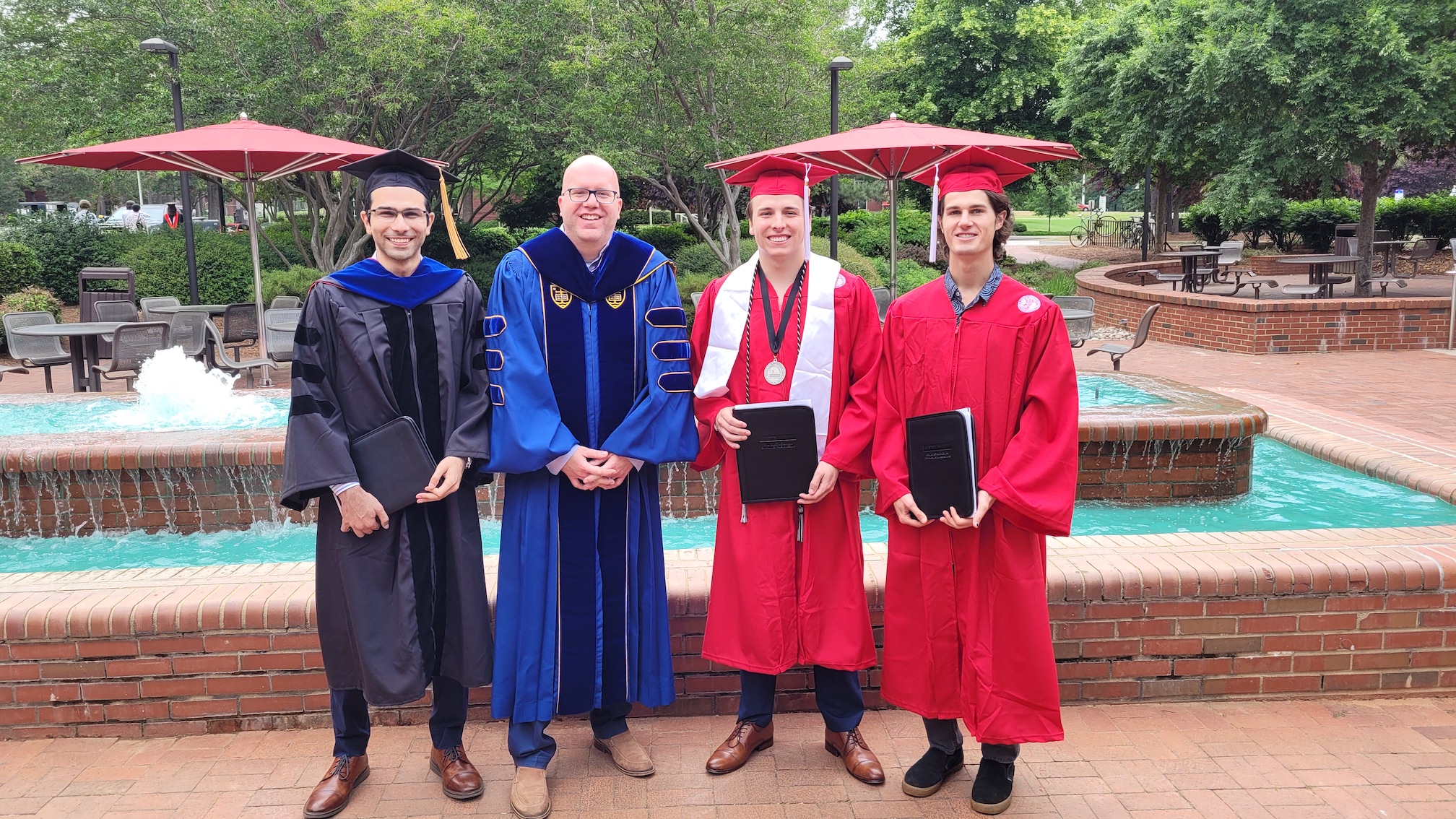
From left to right: Alireza Gharagozlou, Casey Dietrich, Carter Howe, and Vega Sproul celebrate graduation.
Team Photo 2022
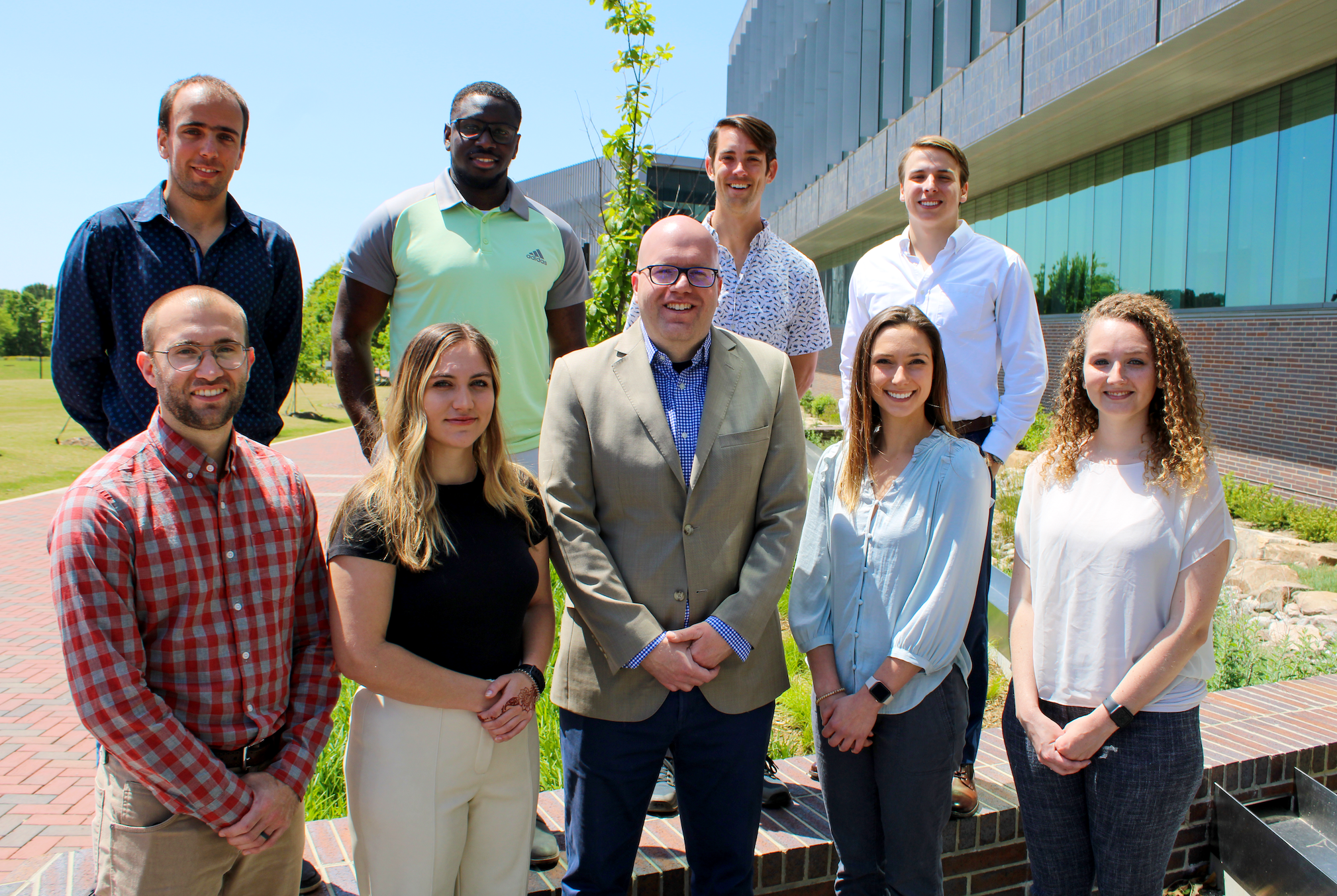
Front (left to right): Dylan Anderson, Sydney Crisanti, Casey Dietrich, Jessica Gorski, Brooke Rumbaugh. Back (left to right): Tomás Cuevas López, Jenero Knowles, Johnathan Woodruff, Carter Howe. Not pictured: Carter Day.


